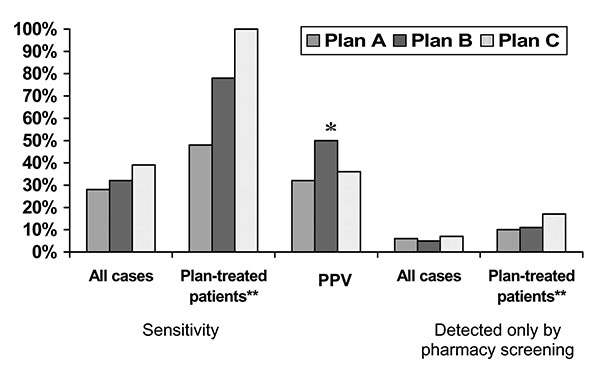Volume 10, Number 8—August 2004
Research
Pharmacy Data for Tuberculosis Surveillance and Assessment of Patient Management
Figure 1

Figure 1. Sensitivity and positive predictive value (PPV) of pharmacy screening and percentage of tuberculosis (TB) cases detected only by pharmacy screening. *Of 28 members who met pharmacy screening criteria, TB case status was verified for 14. PPV calculation based on total of 14 with verified status. **Health plan–treated patients excludes patients receiving anti-TB medication from public health clinics
Page created: June 14, 2011
Page updated: June 14, 2011
Page reviewed: June 14, 2011
The conclusions, findings, and opinions expressed by authors contributing to this journal do not necessarily reflect the official position of the U.S. Department of Health and Human Services, the Public Health Service, the Centers for Disease Control and Prevention, or the authors' affiliated institutions. Use of trade names is for identification only and does not imply endorsement by any of the groups named above.